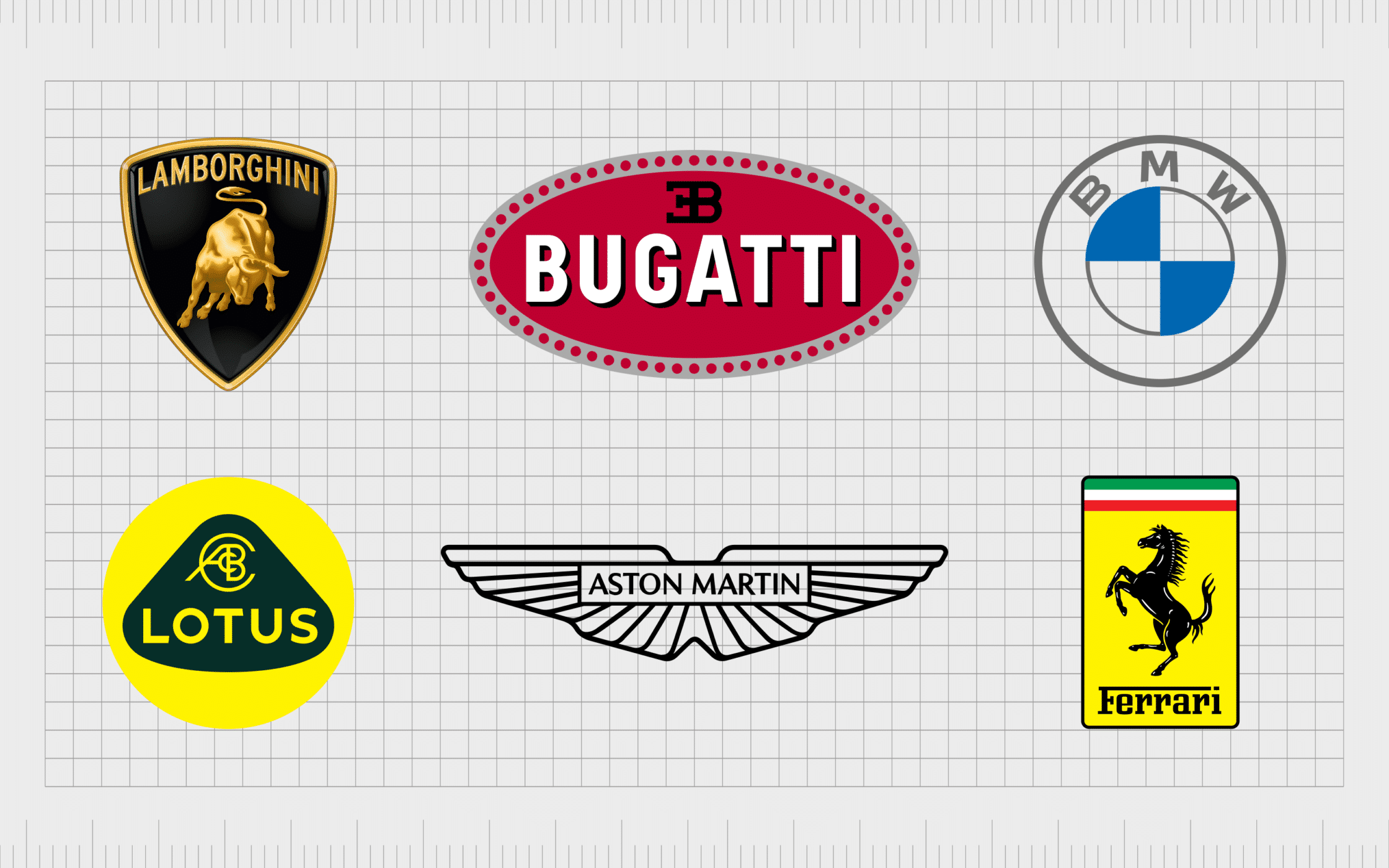The Future Of Luxury Car Brands In China: Lessons From BMW And Porsche

Table of Contents
BMW's Strategy in China: A Localized Approach
BMW's success in China isn't accidental; it's a testament to their commitment to a deeply localized strategy. This approach goes beyond simple translation; it's about understanding and catering to the nuances of the Chinese consumer.
Adaptation to Chinese Consumer Preferences
BMW has meticulously tailored its offerings to resonate with Chinese preferences. This includes:
- Tailored models and features: Specific trim levels and optional packages are offered to cater to the unique demands of the Chinese market, often including features valued more highly in China than in other regions.
- Focus on local design elements: Subtle design choices, sometimes incorporating elements appreciated within Chinese culture, reflect a deep understanding of local aesthetics.
- Emphasis on technology integration: Seamless integration with popular Chinese apps, like WeChat, is crucial. This facilitates features like mobile payment and remote car control, reflecting digital-first lifestyle preferences.
For example, BMW has introduced long-wheelbase versions of several models, specifically designed to offer more rear-seat legroom—a highly valued feature for Chinese consumers who often prefer to be chauffeured. The integration of WeChat Pay for in-car purchases is another example of their adaptation to local digital infrastructure.
Strategic Partnerships and Localization
BMW’s success is also tied to strategic partnerships and localization efforts:
- Joint ventures with Chinese companies: Collaborating with local partners provides valuable market knowledge, access to distribution networks, and streamlined manufacturing.
- Local manufacturing and supply chains: This reduces costs, minimizes logistical complexities, and strengthens ties with the local economy.
- Dealer network expansion: A wide-reaching and well-managed dealer network is essential for servicing the vast Chinese market.
These partnerships aren't just transactional; they represent a commitment to long-term investment and integration into the Chinese automotive ecosystem. Overcoming challenges such as navigating complex regulatory environments and cultural differences have been crucial elements of their success.
Digital Marketing and Engagement
BMW’s digital presence in China is a masterclass in targeted marketing:
- Strong online presence: A robust and engaging website, optimized for Chinese search engines, is a fundamental element.
- Use of social media platforms popular in China: Leveraging platforms like WeChat, Weibo, and Douyin (TikTok) is crucial for reaching target demographics.
- Targeted advertising campaigns: Precisely targeted advertising campaigns on these platforms maximize reach and engagement.
Their success stems from understanding the Chinese digital landscape and tailoring campaigns to resonate with specific consumer segments, employing influencer marketing and interactive content strategies.
Porsche's Focus on Exclusivity and Brand Heritage
Porsche, unlike BMW, prioritizes maintaining its image of exclusivity while adapting to the Chinese market's unique characteristics.
Maintaining Brand Prestige
Porsche’s strategy emphasizes preserving its heritage and image:
- Emphasis on quality and craftsmanship: Maintaining the highest standards of manufacturing and materials is paramount to upholding the brand's prestige.
- Limited edition models: Exclusive releases cater to discerning customers seeking unique and highly desirable vehicles.
- Exclusive events and experiences: Creating opportunities for owners to connect with the brand strengthens loyalty and reinforces the sense of community.
Porsche’s pricing strategies also play a critical role in upholding its image of exclusivity. They carefully manage supply to maintain demand and prevent devaluation of their brand.
Appealing to a Younger Generation
While preserving its heritage, Porsche is actively engaging younger, affluent Chinese consumers:
- Electric vehicle (EV) investments: Investing in electric vehicles is crucial for attracting environmentally conscious younger buyers, aligning with global sustainability trends.
- Digital marketing focused on younger demographics: Tailoring digital content and using platforms favoured by younger generations.
- Collaborations with Chinese influencers: Partnering with key influencers to build brand awareness and credibility among younger demographics.
This careful balance between preserving brand heritage and appealing to a new generation is crucial for Porsche's long-term success. The challenge lies in modernizing without compromising the brand's core identity.
Sustainable Practices and Social Responsibility
Environmental awareness is increasingly important for Chinese consumers:
- Investment in electric vehicles: Transitioning towards a portfolio of electric and hybrid vehicles signals a commitment to sustainability.
- Commitment to environmental sustainability: Implementing environmentally friendly manufacturing processes and supply chains.
- Philanthropic initiatives: Supporting local communities and environmental causes enhances brand image and fosters positive relationships.
Demonstrating a genuine commitment to sustainability is not just a trend; it's a crucial element for gaining the trust and loyalty of increasingly environmentally conscious Chinese luxury car buyers.
Key Takeaways and Future Trends for Luxury Car Brands in China
The experiences of BMW and Porsche highlight several key takeaways for luxury car brands aiming for success in China:
The Importance of Localization
- Understanding Chinese consumer preferences: Deep market research and cultural understanding are essential for success.
- Adapting product offerings: Tailoring products and services to meet specific needs and preferences.
- Building strong local partnerships: Collaborating with local businesses and establishing trust within the community.
Localization isn't an optional extra; it's the foundation of success in the Chinese market.
Digital Transformation
- Investing in digital marketing: Developing a robust online presence and utilizing effective digital strategies.
- Leveraging social media: Effectively engaging with consumers on popular social media platforms.
- Creating engaging online experiences: Providing interactive content and fostering a sense of community.
A strong digital presence is no longer optional; it is essential for reaching and engaging Chinese luxury car buyers.
Sustainability and Social Responsibility
- Focusing on electric vehicles: Offering electric vehicle options is critical for attracting environmentally conscious consumers.
- Reducing carbon footprint: Implementing sustainable manufacturing processes and supply chains.
- Supporting local communities: Engaging in philanthropic activities and demonstrating corporate social responsibility.
Sustainability is not a mere marketing tactic; it represents a crucial long-term investment in brand reputation and consumer trust within the increasingly socially responsible Chinese market.
Conclusion: Navigating the Future of Luxury Car Brands in China
BMW and Porsche's experiences in China offer valuable lessons for other luxury car brands. Success hinges on a multifaceted approach that combines deep localization, robust digital strategies, and a genuine commitment to sustainability and social responsibility. The Chinese luxury car market presents unparalleled opportunities, but navigating its complexities requires a thoughtful and adaptable approach. Want to learn more about navigating the complexities of the future of luxury car brands in China? Continue your research and explore the latest industry insights!

Featured Posts
-
 Analyzing The Wbos Decision Usyk Vs Dubois And Parkers Claim
May 04, 2025
Analyzing The Wbos Decision Usyk Vs Dubois And Parkers Claim
May 04, 2025 -
 Sydney Sweeneys Brown Leather Corset Blazer A Style Icons Look
May 04, 2025
Sydney Sweeneys Brown Leather Corset Blazer A Style Icons Look
May 04, 2025 -
 Fleetwood Macs Chart Run Continues A Deep Dive Into Their Latest Release
May 04, 2025
Fleetwood Macs Chart Run Continues A Deep Dive Into Their Latest Release
May 04, 2025 -
 Al Haymon To Reveal Canelo Vs Crawford Promoter And Platform May 3rd Announcement
May 04, 2025
Al Haymon To Reveal Canelo Vs Crawford Promoter And Platform May 3rd Announcement
May 04, 2025 -
 Bradley Cooper Sidesteps Di Caprio Amidst Gigi Hadid Romance
May 04, 2025
Bradley Cooper Sidesteps Di Caprio Amidst Gigi Hadid Romance
May 04, 2025
